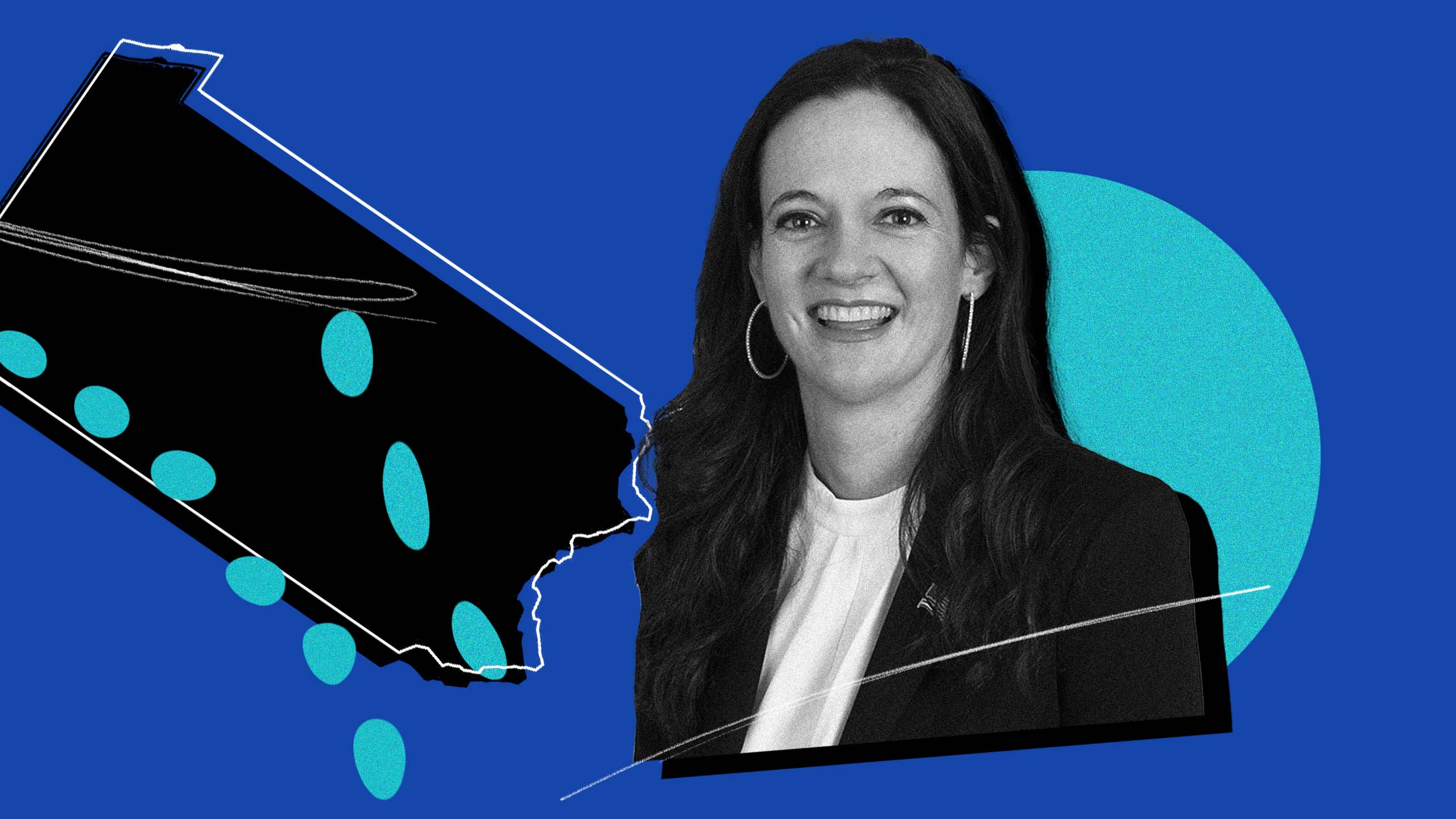A state representative in Pennsylvania is pushing a legislation that would ban any teaching about sexual orientation and gender identity in kindergarten through fifth grade in one of the strictest classroom censorship bills introduced in the U.S. this year.
The bill’s sponsor, Republican Rep. Stephanie Borowicz, outlined the legislation, also known as House Bill 2813, to a crowd of supporters on Tuesday, claiming it is necessary to create parental oversight to their children’s education. If passed, the bill would require schools to inform parents of any physical or mental health services their child receives, allowing parents to sue if this information is withheld from them. During the rally, Borowicz also denounced any efforts to mandate the use of trans students’ chosen pronouns, according to the local newspaper Patriot-News.
“It is patterned after the Florida bill, but mine goes further,” she said, referencing Florida’s infamous House Bill 1557, known by opponents as the “Don’t Say Gay” bill, which bans instruction on sexual orientation and gender identity from kindergarten through third grade, and allows parents to sue schools for teaching material they might deem inappropriate.
“It really needs to be protected up through 12th grade; we need to go all the way,” she told reporters.
Borowicz also voiced her support for a similar senate bill that also allows parents to sue their children’s school districts. The latter, titled SB 1278, has already made it through the Senate; the state’s Democrat governor, Tom Wolf, has promised to veto both it, and Borowicz’s prospective legislation, should they reach his desk.
“HB 2813 is an effort to scorch individuality and normalize unacceptance. This legislation denies humanity by reinforcing homophobic ideologies,” Wolf is reported to have said.
“HB 2813 is an effort to scorch individuality and normalize unacceptance. This legislation denies humanity by reinforcing homophobic ideologies.”
The governor has reached his term limit this year, but his party’s nominee for governor, Attorney General Josh Shapiro, has voiced his opposition to the legislation, as well. However, his Republican opponent, Doug Mastriano, attended Tuesday’s rally to voice support for both bills, according to Patriot-News.
House Bill 1557 is just one of many bills seeking to censor queer- and trans-affirming discussions in classrooms in 2022. At least a dozen states, including Arizona, Alabama, Georgia, Iowa, Louisiana, Missouri, Oklahoma, Tennessee and Ohio have introduced their own versions of Florida’s “Don’t Say Gay” bill, following nationwide outrage at its passing, although the latter remains the only bill signed into public law. A few of these proposals, including Borowicz’s proposal, and Tennessee’s House Bill 800, are stricter than the Sunshine State’s. Namely, Tennessee’s explicitly bans any conversation regarding LGBTQ2S+ “issues or lifestyle” through the twelfth grade.
“A pretend education serves no one, and it does particular harm to LGBTQ2S+ youth by stigmatizing their existence,” Chris Sanders, executive director of the Tennessee Equality Project, told Xtra in April, adding that the bill “erases our community from history, literature and all subjects.”
Adam Polaski, communications director for the Campaign for Southern Equality, concurred in an emailed statement regarding a similar bill in Virginia in March.
“This bill, like many of the other bills seeking to censor curriculum in schools to erase discussion of racial justice and LGBTQ2s+ identity, is so troubling, in part, because of its vagueness,” he wrote. “It is so vague that it could empower anti-LGBTQ2s+ forces to contest a broad range of educational materials, such as those that simply include LGBTQ2s+ characters or historic figures.”
According to the Human Rights Campaign, more than 300 discriminatory bills have been filed in at least 23 states this year alone, with many of these limiting trans youth access to medical care and school athletics.
Some states, such as Oklahoma, are also pushing book bans targeting libraries for material that deals with “the study of sex, sexual preferences, sexual activity, sexual perversion, sex-based classifications, sexual identity or gender identity.”


 Why you can trust Xtra
Why you can trust Xtra


